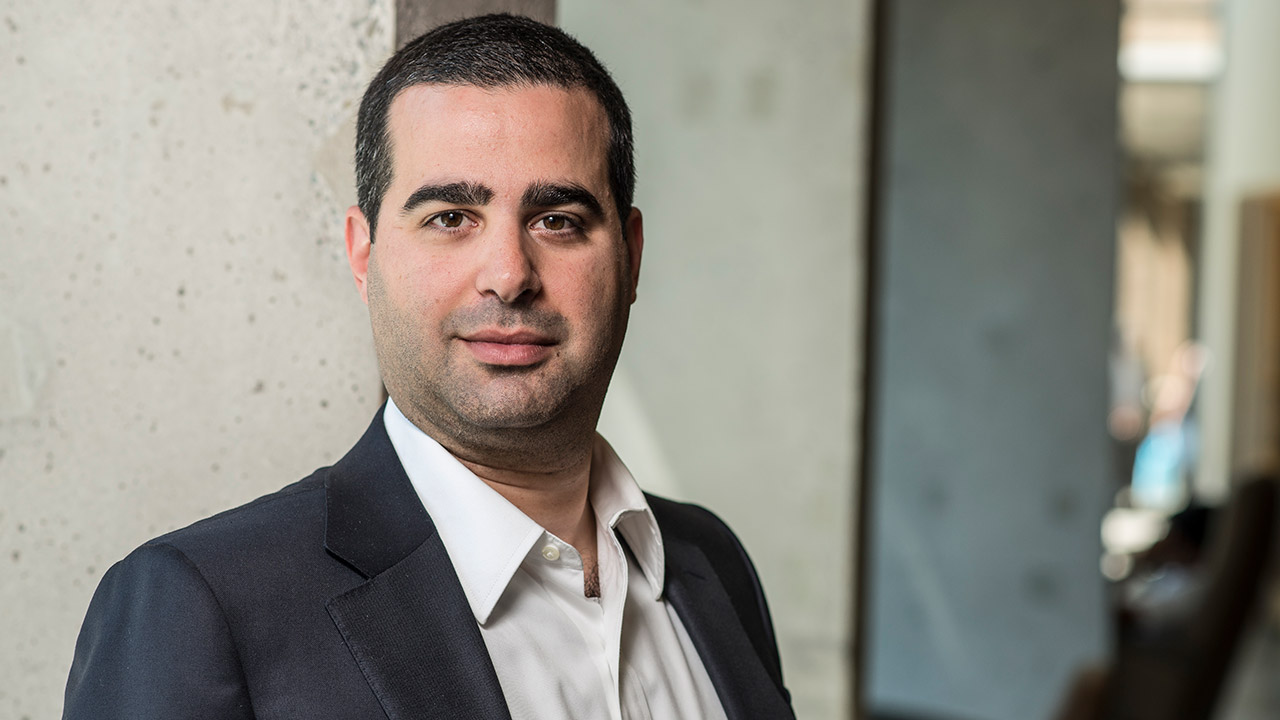Trial launched on deep brain stimulation to treat severe alcohol-use disorder
A trial believed to be the first in North America using deep-brain stimulation to treat people with alcohol-use disorder has launched at Sunnybrook. Its first participant is renowned scientist Dr. Frank Plummer, who is speaking out about his experience. Dr. Nir Lipsman, a scientist in the Hurvitz Brain Sciences Research Program at Sunnybrook Research Institute (SRI) and the director of the Harquail Centre for Neuromodulation at Sunnybrook, is leading the study.
Deep brain stimulation, around since the 1970s, entails making small holes in the skull through which electrodes are implanted in the brain. These are connected to a pacemaker-like device in the chest, which is controlled externally and sends electrical impulses to a targeted area. For treatment-resistant alcohol-use disorder, the electrodes are placed in the nucleus accumbens, a region deep in the brain that is associated with addiction, decision-making and mood. The treatment has been used on people with Parkinson’s disease, depression and anorexia nervosa, among other conditions.
Plummer, an Officer of the Order of Canada primarily for his work in HIV/AIDS, had the surgery performed at Sunnybrook in December 2018. For years he had been a heavy drinker, learning in 2012 his liver was failing and in 2014 requiring a liver transplant. Common therapies, treatment programs and alcohol anonymous meetings failed to help him, meaning he was the perfect candidate for the Sunnybrook trial, which seeks to recruit patients in dire, near fatal situations. To volunteer for the trial, one must have tried other treatment routes.
Sunnybrook researchers say the first three patients to be treated, including Plummer, are doing well. Although brain surgery is risky, they say the therapy seems to be relatively safe. Six patients will be tested. As the study continues, changes in brain structures and activity will be evaluated.
Deep brain stimulation isn’t viewed by Lipsman as the final phase of therapy for alcohol-use disorder, which affects about 8% of Canadians, but instead as a possible first step toward allowing other forms of treatment to work. Counselling or rehabilitation programs following surgery are part of the therapy package.
One year on, Plummer says he is no longer consumed by thoughts of alcohol and does not drink every day. He says he is happy, writing a memoir and ready to move forward with developing an experimental HIV vaccine.
» Read the full story at CTV News and The Globe and Mail



